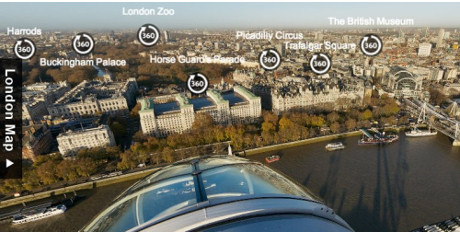
Image Source: Huffington Post
The unexpected purchase of Oculus Rift VR by Facebook this week certainly left us at Umi Digital pondering over how the social media network could be combined with virtual reality. We were also then thinking about the potential impact on the hospitality industry? Could virtual experiences actually start eating into the market share for real experiences?
Perhaps we need to look at other wearable tech developments like the Razer Nabu. Razer have developed a smart wrist band that goes further than the calorie counting, pedometer origins of smart wristband. There are features like connecting with people on social media simply by shaking their hand. This sort of technical influence promotes and enables social interaction in the real world, whereas Oculus VR and potentially Google Glass actually begins to substitute it. A dive bar in Seattle has actually banned Google Glass as they claim it breaks down too many social boundaries of pub culture. I think that this backlash might escalate as these devices become more prevalent.
However, with our marketing hats on, the marketing potential for a VR/social media combination in the hospitality sector is absolutely vast. There will now be opportunities to virtually experience a location before you visit and book tables, tours and other attractions from within the tour itself. On the flip side, sharing a VR experience through social media goes beyond the standard photo. This could be incredibly powerful, and if the technology is slick enough, this content will be worth its weight in gold to companies using it for marketing material.
At Umi Digital, we’ve developed a product called Umi 360 which is a virtual tour of any given place that can be embedded into a website or an app. Within this tour, we can overlay booking functionality, social media sharing and trip adviser reviews. As you can imagine, we are very excited with the recent buyout from a marketing point of view, but we’ll be keeping a close eye on the signals the social norms are being pushed.





